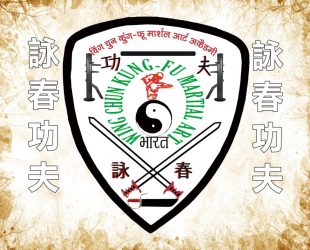Introduction:- In the realm of martial arts, Wing Chun stands out as a unique and highly effective form of self-defense. Originating from southern China, this martial art style has gained immense popularity worldwide due to its practicality, efficiency, and emphasis on sensitivity and reflexes. Beyond its combat prowess, Wing Chun offers numerous health benefits that contribute to the overall well-being of its practitioners. In this article, we explore some of the remarkable health advantages of practicing Wing Chun.
- Enhanced Physical Fitness: Wing Chun training incorporates a wide range of physical movements, including punches, kicks, strikes, and blocks, which promote cardiovascular endurance, muscular strength, and flexibility. Practitioners engage in dynamic footwork and fast-paced drills, which elevate heart rate and improve overall fitness levels. Regular Wing Chun practice can lead to weight loss, increased stamina, and improved coordination, making it an excellent choice for individuals seeking to improve their physical fitness.
- Improved Posture and Body Alignment: Central to the principles of Wing Chun is the cultivation of a balanced and grounded stance. Wing Chun techniques are designed to promote proper body alignment, correct posture, and the alignment of the spine. By strengthening the core muscles and promoting correct posture, Wing Chun practitioners can alleviate back pain, reduce the risk of musculoskeletal injuries, and improve overall body mechanics.
- Mental and Emotional Well-being: Wing Chun training not only benefits physical health but also promotes mental and emotional well-being. The practice requires concentration, focus, and discipline, which can help to relieve stress, anxiety, and improve mental clarity. The meditative aspects of Wing Chun training provide an opportunity for practitioners to develop mindfulness, self-awareness, and inner peace.
- Enhanced Reflexes and Reaction Speed: Wing Chun emphasizes the development of quick reflexes and lightning-fast reactions. The training involves drills and exercises that enhance hand-eye coordination, reaction time, and reflexes. These skills can be applied not only in martial arts but also in various aspects of daily life, such as driving, sports activities, and reacting to unexpected situations.
- Self-defense Skills and Confidence: As a martial art form, Wing Chun equips practitioners with effective self-defense techniques that can be used in real-life situations. The ability to defend oneself not only provides a sense of security but also boosts self-confidence and self-esteem. Wing Chun training empowers individuals by teaching them how to assess threats, react appropriately, and neutralize attacks efficiently.
- Cultivation of Discipline and Focus: The rigorous training routines and demanding techniques of Wing Chun require discipline, perseverance, and focus. Regular practice helps individuals develop mental strength, concentration, and discipline, which can extend beyond the training environment into other aspects of life. The cultivation of discipline and focus through Wing Chun can contribute to personal and professional success.
Conclusion: Wing Chun is not only a powerful martial art but also a holistic discipline that promotes physical fitness, mental well-being, and self-defense skills. From improved physical fitness and enhanced reflexes to increased confidence and discipline, the health benefits of Wing Chun are far-reaching. Whether you are seeking to improve your fitness levels, develop self-defense skills, or enhance your mental and emotional well-being, Wing Chun offers a comprehensive approach to overall health and personal growth. Embrace the art of Wing Chun and unlock the hidden potential within you.
Dr. Sonu Kumar Giri.
President, Wing Chun Kung Fu Martial Art Academy, India.

